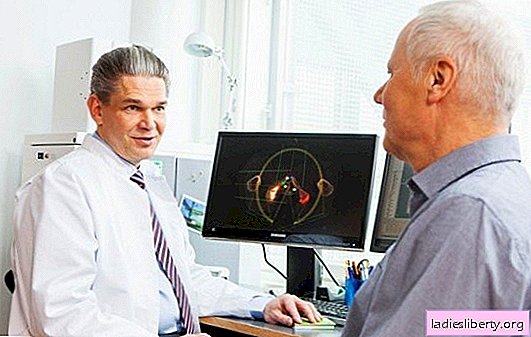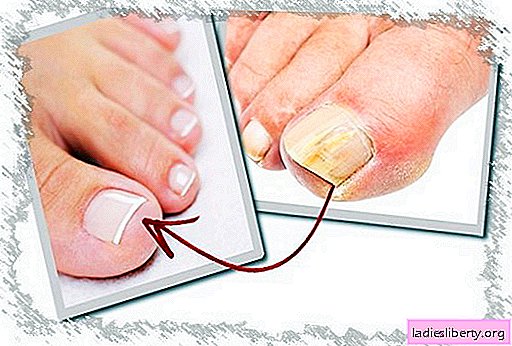
Like any malignant cancer, prostate cancer is a dangerous condition that requires adequate medical attention. This pathology affects only men, due to the characteristics of the anatomy of the stronger sex. According to statistics, this form of oncology is in first place among all others. The risk of getting sick in men under 40 is about 8%, with age this figure is growing steadily: after 45 years, the risk increases to 20%, and after 55 years to 45%. Statistics are disappointing, because timely diagnosis (including self-diagnosis) plays such a role.
Prostate Cancer in Men: Causes
This is a polyetiological disease: this means that there are many causes of prostate cancer in men. Among them:
• Genetic predisposition. Prostate cancer in some cases is due to genetic factors. So, if in the first or second generation of ancestors there was a man suffering from prostate cancer, the risk of getting sick increases by 75%.
• The presence of bad habits. The main one is smoking. The mechanism of influence of nicotine on the prostate is “tied” to the disruption of cellular processes and the formation of spontaneous mutations.
• Excessive consumption of fatty foods.
• Interruptions in sexual activity. Irregular sexual intercourse leads to stagnation of the secretion of the prostate gland. Stagnation is a direct path to adenoma, and later to malignant oncology.
• Work in hazardous industries. A connection was found between the exposure of the body to cadmium compounds and the risk of prostate cancer in men. A person can meet with these "harmful" substances in printing houses, in textile industries, etc.
• Weakened immunity. Indirect reason. Atypical cells are constantly formed in the human body. Actively working immunity, like a guard, tracks them and destroys them. If a decrease in immunity is observed, pathological cells get the opportunity to divide.
• The presence of prostate adenoma. Adenoma is also a tumor, but unlike cancer, it is benign. However, the benignness of any tumor is very arbitrary: it is enough for the immune system to “weaken its alertness” a little, as the atypia of the cells will begin to grow and the tumor will transform (malignant).
• Hormonal disorders. Too active sex life, intense physical activity and other factors of this kind increase the concentration of male sex hormones. These substances affect the prostate, making it work more actively. The organ responds with the proliferation of tissues, since it is not able to provide the evoked need.
Causes of prostate cancer in men are many. At the same time, causes are also considered risk factors.
Signs of prostate cancer in men
The insidiousness of a malignant lesion of the prostate gland lies in the fact that the first symptoms of prostate cancer in men do not appear exactly until the last moment. At the initial stage, when the tumor is easiest to destroy, it does not make itself felt, and quietly, imperceptibly continues its dirty business.
Oncology is often discovered by chance, when conducting related studies. This is luck, but you should not rely on it.
The basis of the first symptoms of prostate cancer in men is constituted by compression phenomena: a situation where a growing neoplasm puts pressure on neighboring organs and structures. The bladder is primarily affected. Hence the specific manifestations:
• Pain in the suprapubic region (in the area of the bladder). Strengthen when urinating, at rest also persist.
• Imperative urination: a man is simply not able to tolerate them.
• Rapid urination during the day. Visits to the toilet room become frequent, up to 30 times a day.
• Violations of the urination process. Urine may be excreted dropwise, there may be problems with pressure, sudden interruptions in the process, etc.
• Incontinence.
These symptoms are not specific: the same thing occurs with cystitis, and with cancer of the bladder, and with prostatitis, and with prostate adenoma. One can distinguish one from another only by the results of special studies. However, another thing is important: if at least one of the described is observed, you should not delay it with a visit to the urologist.
As the tumor grows, signs of intestinal compression with characteristic constipation develop. Large tumors tend to block the urethra, while the ability to urinate completely disappears and can not do without urgent medical attention.
At the advanced stages of the disease, the tumor metastasizes to the liver, kidneys, brain, bladder, etc. At this stage, signs of damage to certain organs: jaundice, etc. are added to the signs of prostate cancer in men.
Diagnosis of prostate cancer
As already mentioned, most often prostate cancer is detected by chance even before symptoms appear. But this is nothing more than luck. You cannot rely on luck. Regular preventive examinations should be performed by a urologist or andrologist. This is especially true for men over forty.
Diagnosis is not particularly difficult. For the diagnosis in most cases, it is enough to conduct a blood test for prostatic antigen-PSA. In the initial stages of cancer, the immune system tries to resist and begins to secrete antigens to fight atypical prostate cells. This greatly facilitates the diagnosis.
However, this is not enough. A major role is played by identifying the prevalence of the process and determining its stage. Other methods are used for this:
• Physical (finger) examination of the prostate. Feeling of the tissues of the prostate gland is carried out. Allows you to determine the size of the organ and its structure.
• Ultrasound diagnostics of the prostate. It is carried out by introducing an ultrasound probe into the intestine. One of the most informative studies.
• MRI / CT. It makes it possible to evaluate in detail the condition of the prostate.
Prostate Cancer in Men: Treatment
It is important to understand that the earlier a tumor is detected, the less traumatic the treatment will be. The basis of therapy are three methods: surgical treatment, chemotherapy, radiation therapy.
Surgical treatment is indicated in cases where the process becomes developed and the tumor grows. Doctors practice a radical organ removal operation. For obvious reasons, this is the most traumatic way to treat prostate cancer in men. Surgery is discarded if the tumor is too large or if the patient is old.
Radiation therapy is much less traumatic. It is used in cases where the tumor has not reached significant size. This allows you to save the organ. At the same time, radiation therapy is resorted to in cases of inoperable tumors.
Chemotherapy is prescribed in conjunction with the voiced treatment methods and consists in the introduction of special toxic substances into the body that kill rapidly dividing cells.
In addition to the traditional triad of methods, other types of treatment are prescribed. So, hormonal drugs are prescribed that significantly inhibit the growth of the tumor by reducing the level of male hormones. Immunomodulators that activate the body's natural protective functions are effective.
In combination, these funds help to defeat the disease and provide high survival.
Prostate Cancer in Men: Prevention
There is no specific prevention of prostate cancer in men. However, a person can take some actions to reduce the risk of developing oncology:
• Optimize your diet by refusing fatty foods.
• To exclude work in hazardous enterprises associated with cadmium emissions.
• Have a regular sex life.
• Adhere to moderate physical activity.
• Undergo regular preventive examinations by a urologist or andrologist.
• Sleep at least 6-7 hours during the day.
Prostate cancer is a truly insidious and dangerous disease that does not let you know about its presence before it is too late for a gentle treatment. This oncological pathology is found in many men, and with age, the risk only increases (after 55 years, almost one in seven is ill). In order not to miss an important point, you should regularly see a urologist. Fortunately, on-time detected cancer responds well to therapy. The main thing is to carefully consider your health.











